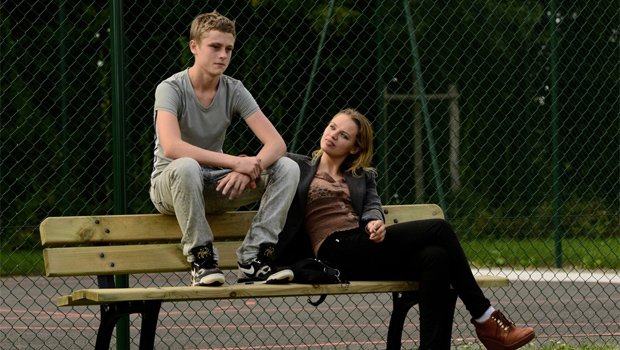Standing Tall reaction: Cannes 2015
The 2015 Cannes Film Festival opened with the hard-hitting Standing Tall by Emmanuelle Bercot. Here's Jamie Graham's reaction...
After the boos and catcalls that greeted 2014’s Cannes Opener Grace Of Monaco, the programmers this year sought a change of tactics, ditching Hollywood glamour (meaning stars on the red carpet and the world’s attention) in favour of solid French social drama Standing Tall (La Tete Haute). Directed and co-written by Emmanuelle Bercot (Elle S’en Va, Les Infideles), it marks the first time the famous festival has opened with a female-directed film since Diane Kurys' A Man In Love in 1967.
Set over a 10-year period, Standing Tall tracks the jolting journey of Malony (Rod Paradot) through the French judicial system. His father died when he was four, his mother’s (Sara Forestier) love lacks any form of discipline, and Malony, aged 13-18 for the majority of the action, is unschooled and ferociously unruly. His pent-up anger overspills frequently and deafeningly. A stoic, dignified judge (Catherine Deneuve) attempts tirelessly to help him, as does a counsellor (Benoit Magimel) who himself has a scarred past. But deep-running anger and self-esteem issues are barely soothed by spells in a Juvenile Rehabilitation Facility, a Juvenile Detention Centre and, when he turns 16, prison.

There are echoes here of one of the competition favourites from last year, Xavier Dolan’s Mommy, though the melodrama is muffled and the social realism amplified. In Paradot, Bercot has fixed her camera to a volcanic, charismatic young actor who deserves mention in the same breath as Mommy’s Antoine-Olivier Pilon: there is hardly a moment he is not on screen, pacing, grimacing, wincing, smoking, screaming; even when he’s still and silent, the ready-to-blow volatility steams from every pore. Deneuve, who spends nearly all of her scenes sat behind a desk, is the counterbalance, a grounded, dignified professional who modulates her behaviour in the face of whatever insults are thrown at her.
Bercot’s direction is focused and rarely sentimental, retaining energy and clarity without feeling the need to go overboard on shaky-cam, desaturated colours and other keep-it-real signifiers. Instead she trusts her script and actors. It’s a very decent drama without ever threatening to elevate into something transcendental or indelible, marred slightly by the clichéd use of classical music to underline the poignancy and tragedy at play, and a rather on-the-nose final shot.
In partnership with Microsoft, powered by the HP Spectre 360
Sign up for the Total Film Newsletter
Bringing all the latest movie news, features, and reviews to your inbox
The Total Film team are made up of the finest minds in all of film journalism. They are: Editor Jane Crowther, Deputy Editor Matt Maytum, Reviews Ed Matthew Leyland, News Editor Jordan Farley, and Online Editor Emily Murray. Expect exclusive news, reviews, features, and more from the team behind the smarter movie magazine.


